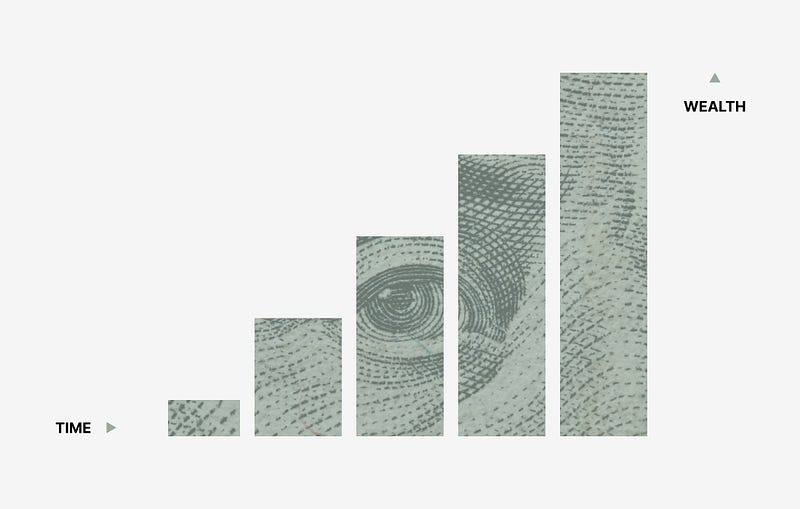A Discussion of Chapter 6 “Inequality is Not the Problem”
Last chapter, McCloskey argued the Great Enrichment has helped people across the income spectrum making the poor today in a developed country far better off than any time before.
But that does not mean it is great being at the bottom of the income distribution. “It could be worse” is not the best comfort!
Her point though is people seldom recognize how much progress has been made for all people at all income levels who live in a country that has enjoyed the Great Enrichment.
In this chapter, she highlights how issues of how to address poverty, something she thinks should be done, gets conflated with the existence of income inequality.
Essentially, income inequality will result in an economy allowing the Great Enrichment process to proceed. But, the overall wealth increase can be used to improve those at the lower income level.
If instead, envy leads to calls for policies to correct income inequality, such policies will likely stymie the Great Enrichment process, potentially making the poor worse off.
Definitions
First we need to define some terms.
A person is in absolute poverty when he does not have the income needed to meet the minimum requirements for food, clothing and shelter — the least amount needed to sustain life.
For countries that have been through the Great Enrichment, there is no absolute poverty.
Instead a person is in relative poverty if they have a low standard of living compared to others in the same country.
You can get a better understanding of these by comparing the World Bank’s poverty line of $1.90 per day, a measure of absolute poverty, versus the US poverty threshold of $13,465 a year for individuals (it scales up for larger households). Using this number, that is about $37 a day, a measure of relative poverty in the US.
Poverty and Inequality are 2 Different Issues
With that in mind, McCloskey wants us to realize the consequences of two truths.
- We always will have the poor. No matter how rich a country gets, someone is in the bottom 10% or bottom 20%. This is relative poverty.
- The living conditions of those at the bottom of the income distribution should be a public policy discussion, but it is not inequality itself that is the problem.
As McCloskey says, we can strive for the “noble and ethically relevant and actually attainable purpose of raising the poor to a condition of dignity,” meaning some concept of “enough.” (p. 47)
This needs to be debated within each country to determine the amount of income redistribution needed so those at the bottom will have this basic enough.
But if we instead focus on equality, the redistribution of income will have to be substantial.
What is the problem with that?
That level of income redistribution interferes with the reward system built into the Great Enrichment. The trade-tested betterment process, as McCloskey terms it, functions by rewarding those providing highly demanded goods and services very well. Also, those who are providing something in limited supply like top athletes and entertainers.
Massive redistribution lowers the incentive to invest, innovate and take risks. Economic growth slows, productivity falls off, and you lose the engine that drove the Great Enrichment — the very thing that had raised the poorest in a country out of absolute poverty.
The focus on eliminating inequality is rearranging existing wealth but doing so stops the creation of more wealth.
The Great Enrichment is the creation of wealth. It does not go to everyone equally, but it does increase the standard of living for all. By definition there is still relative poverty, but the poverty line increases as the total wealth in the society grows.
Isn’t Inherited Wealth a Problem?
Well, some critics would say, that is all fine and good for people who do work hard for their wealth, but what about the unfairness of inherited wealth?
McCloskey’s first rebuttal is to such an argument raised by French economist Thomas Piketty that “money tends to reproduce itself.” (p. 48) The rich get richer and richer.
McCloskey counters that if he were right, inequality would be so much worse than it actually is as the descendants of a rich person from the 1800s would have only gotten richer over time.
This means that those who are wealthy would find their wealth continuing to grow and inequality getting worse and worse when in fact the data shows inequality tends to rise and fall in waves.
Once a Piketty-wave starts it would, according to his logic, never stop, which means we should have been overwhelmed by an inequality-tsunami in 1800 CE or 1000 CE or for that matter 2000 BCE. (p. 48)
Instead McCloskey points out that inherited wealth can result in laziness: “Laziness from being rich too early is a powerful equalizer.” (p. 49) Those who inherit wealth young may not feel the pressure to generate wealth themselves and instead use it up through consumption.
The Great Enrichment is the Key
Thus, McCloskey sees the important issue for a society is to adopt policies that support the Great Enrichment to make everyone better off, and then debate as a society what policies are needed to make sure those at the bottom in relative poverty still have “enough.”
For the poor in the countries that allowed the ethical change to happen, Frankfurt’s “enough” has largely come to pass. “Largely,” I say, and much more than alternative systems have allowed. I do not say “completely” or “as much as every honest person would wish.” (p. 50)
She then asserts the social safety net is not as different among the United States, the Netherlands, and Sweden as conventional wisdom holds,
…despite what you have heard from journalists and politicians who have not seriously looked into the actual statistics or have not seriously experienced more than one country. The social safety net is, in practice, rather similar among rich countries. (p. 50)
To put it succinctly, “the safety net, with or without holes, is not the main lifter of the poor…The way to the lift is the Great Enrichment.” (p. 50)
Conclusion
Obviously, those at the bottom cannot enjoy the same luxuries as those who are richer, but they have been lifted out of absolute poverty, which McCloskey says needs to be acknowledged.
Quoting a Belgian sociologist, Daniel Zamora, there is “a distinction between a policy that seeks equality (socialism) and a policy that simply aims to eliminate poverty without challenging disparities (liberalism). ” (p. 52)
As McCloskey concludes,
Solving absolute poverty came in fact from the Great Enrichment, and attempting to solve a logically insoluble relative poverty resulted in slow growth and the encouragement of insatiable envy. (p. 52)
Envy is defined as “a feeling of discontent or covetousness with regard to another’s advantages, success, possessions, etc.”
Envy is a sin for a reason. Giving into envy by striving for equality harms all by ending the process of the Great Enrichment that actually helps all, though, yes, unequally.
We would all be better off if we valued gratitude for what we have instead of envy for what we don’t and a compassionate heart to take care of those in need.
Reference: McCloskey, Deirdre Nansen, 2016. “Inequality is Not the Problem,” Chapter 6 of Bourgeois Equality, The University of Chicago Press.




